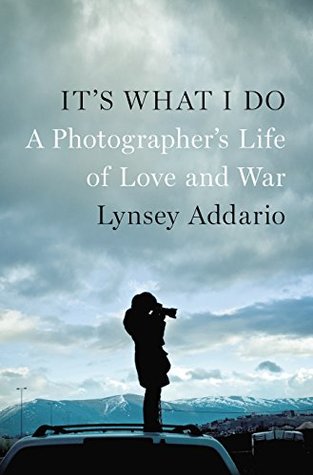More on this book
Community
Kindle Notes & Highlights
Read between
December 5 - December 17, 2019
The rebels were just ordinary men—doctors, engineers, electricians—who had thrown on whatever green clothes or leather jackets or Converse sneakers they had in their closet and jumped in the backs of trucks loaded with Katyusha rocket launchers and rocket-propelled grenades.
The photographer Robert Capa once said, “If your pictures aren’t good enough, you’re not close enough.” In Libya, if you weren’t close enough, there was nothing to photograph.
The truth is that few of us are born into this work. It is something we discover accidentally, something that happens gradually. We get a glimpse of this unusual life and this extraordinary profession, and we want to keep doing it, no matter how exhausting, stressful, or dangerous it becomes. It is the way we make a living, but it feels more like a responsibility, or a calling. It makes us happy, because it gives us a sense of purpose. We bear witness to history, and influence policy.
I became comfortable in places most people found frightening, and as I saw more of the world, my courage and curiosity grew.
With my subjects—the thousands of people I have photographed—I have shared the joy of survival, the courage to resist oppression, the anguish of loss, the resilience of the oppressed, the brutality of the worst of men and the tenderness of the best.
But after years of witnessing so much suffering in the world, we find it hard to acknowledge that lucky, free, prosperous people like us might be suffering, too. We feel more comfortable in the darkest places than we do back home, where life seems too simple and too easy.
The more I traveled, the more I craved a life of travel.
Life was difficult in India, but it was also cheap. Personal space did not exist, but a little money could buy luxury.
I often lived with an aching emptiness inside me. I learned early on that living a world away meant I would have to work harder to stay close to the people I loved.
This was the first time I had to decide between my personal and professional lives. Some part of me knew, or hoped, that real love should complement my work, not take away from it.
TWO OR THREE BOMBS went off every day. We got used to it. My judgment of danger became increasingly skewed. I lost a sense of fear. I was no longer running away from explosions but running directly toward them. I just wanted the lasting, indelible images of the war to sear the front pages of the newspaper so our policy makers could see the fruits of their decision to invade Iraq. I wanted this at any cost.
Women Are Casualties of Their Birthplace
Tread lightly, be respectful, get into the story as deeply as I could without making the subject feel uncomfortable or objectified.
I was conflicted about making money from images of people who were so desperate, but I thought of all the years I had struggled to make ends meet to be a photographer, and I knew that any money I made from these photos would be invested right back into my work. Trying to convey beauty in war was a technique to try to prevent the reader from looking away or turning the page in response to something horrible. I wanted them to linger, to ask questions.
I had the privilege to travel and to walk away from hardship when it became too much to bear. Most people on earth didn’t have an exit door to walk away from their own lives.
no matter what I accomplished with my career, nothing eliminates those stinging insecurities you develop as a child or teen.
Everyone gave us that familiar look that male soldiers try to conceal without success: Ugh, girls.
the only thing that had kept me alive during Iraq, Afghanistan, Lebanon, Congo, and Darfur was my inner voice that told me when I had reached my personal limit of fear.
“Really? Was it dangerous? Have you ever almost died?” It was a question I had received often since I started covering war. Everyone wanted to reduce my entire career down to the one or two moments when I might have lost my life.
Covering war was inflicting immeasurable pain on our loved ones, and we knew it.
But I realized how selfless my parents were: Regardless of how much pain they suffered as a result of my professional decisions, they always supported me. They had given me a boundless inner strength.
I choose to live in peace and witness war—to experience the worst in people but to remember the beauty.


